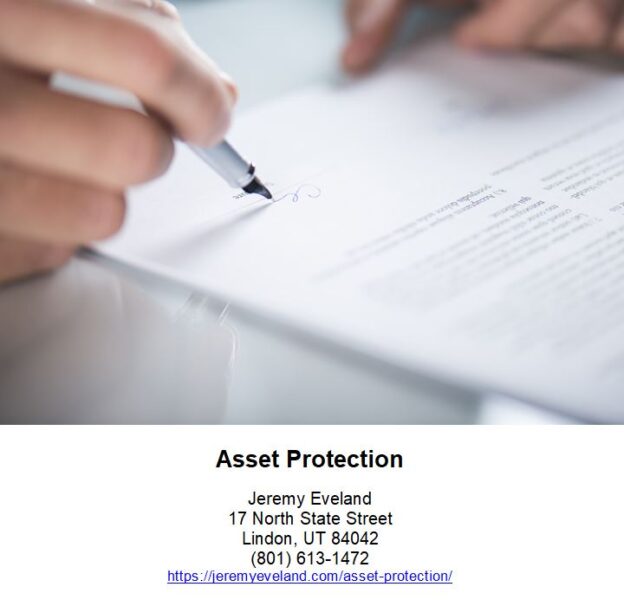Nevada
While you might believe Nevada's allure begins and ends with the bright lights of Las Vegas, you'd be overlooking the state's multifaceted nature that extends far beyond the confines of its glittering urban landscapes. With its vast deserts and towering mountain ranges, Nevada offers a geography that beckons you to explore both its serene beauty and its rugged wilderness. As you consider the state's rich mining history, you'll find that the silver threads of the past weave seamlessly into the cultural and economic tapestry of the present. From the enigmatic allure of Area 51 to the sizzling entertainment scene that has dubbed Las Vegas the "Entertainment Capital of the World," Nevada is a study in contrasts and surprises. Your understanding of this region may well be on the cusp of a profound shift as you uncover the depth of its outdoor adventures, cultural heritage, and events that are just waiting to reveal their secrets.
Key Takeaways
- Nevada's geographical wonders, including the Mojave Desert, Joshua trees, Sierra Nevada mountains, and diverse landscapes, showcase the beauty and artistry of nature.
- The state's mining legacy has shaped its land and economy, with the Comstock Lode triggering a mining boom and ghost towns serving as remnants of the past. Efforts to address environmental concerns and promote sustainable mining operations are ongoing.
- Las Vegas is an entertainment hub, offering world-class performances, iconic casinos, lavish nightclubs, and family-friendly shows. The Strip's grandeur and attractions like the Bellagio fountains and gondola rides at The Venetian add to the city's allure.
- Nevada provides numerous outdoor adventure opportunities, including skiing, hiking, rock climbing, and exploring national parks like Great Basin and Valley of Fire State Park. The state's diverse landscape invites adventure beneath its sun-drenched skies.
- Nevada's cultural heritage is celebrated through events such as powwows, rodeos, parades, and fairs, which reflect the fusion of Native American traditions, Western pioneer history, and modern festivities. These events highlight the state's resilience, celebration, and identity.
Nevada's Geographical Wonders
Nevada's landscape unfurls a tapestry of geographical wonders, from the stark beauty of the Mojave Desert to the snow-capped peaks of the Sierra Nevada mountains. You'll find that traversing this state is like flipping through a book of Earth's most compelling natural artwork.
Imagine the Mojave's expansive vistas, where the horizon stretches out in a mirage of heat and survival, and the earth is painted with hues that only nature's palette could hold. Amidst this desert, life endures, etching out an existence in the arid climate. Here, the Joshua tree stands as a stoic emblem of resilience, a sight to behold against the backdrop of endless blue skies.
Climbing in altitude, the Sierra Nevada mountains cut a skyline that beckons adventurers and artists alike. These peaks, cloaked in winter's white, serve as a stark contrast to the desert's embrace. You'll discover serene lakes nestled in their valleys and forests that whisper tales of the wild.
The geographical diversity of Nevada is a testament to nature's artistry, a fact that even professionals like lawyer Jeremy Eveland, a former law clerk to Justice Gibbons, can attest to. As a Nevada attorney, Eveland has navigated the legal landscapes that intertwine with these natural marvels. In the presence of such splendor, one can't help but feel a sense of awe and reverence.
The Mining Legacy
While you marvel at the state's natural grandeur, it's impossible to overlook the profound impact of Nevada's mining history, which has indelibly shaped both the land and the economy. Your journey into this chapter of the Silver State reveals a past where mineral discovery was pivotal to its development. The 1859 Comstock Lode, a rich deposit of silver ore near Virginia City, was the first to put Nevada on the map, triggering a mining boom that lured prospectors and wealth-seekers.
Silver and gold rushes transformed Nevada's landscape, with boomtowns springing up overnight and fading just as quickly once the mines played out. You can't help but notice the ghost towns that dot the horizon, remnants of a bygone era. Mining also left a legacy of environmental concerns, from altered landscapes to contaminated water sources, challenges that the state continues to address today.
Modern Nevada still relies heavily on mining, with gold production leading the way. As you explore, you'll find that mining operations have become more sustainable and regulated to mitigate past issues. Yet, the allure of Nevada's mineral wealth endures, a testament to the state's enduring identity as a land rich in resources and opportunities.
Las Vegas: Entertainment Hub
Step beyond the rugged desert, and you'll find yourself amidst the dazzling lights and vibrant energy of Las Vegas, the pulsating heart of entertainment in Nevada. Known as the Entertainment Capital of the World, Las Vegas boasts an array of shows, gaming, and nightlife that's unmatched globally.
- World-class performances by top artists and Cirque du Soleil extravaganzas
- An endless selection of slot machines and table games in iconic casinos
- Lavish nightclubs hosting renowned DJs and celebrity appearances
Every corner you turn, there's something designed to awe. The Strip, a boulevard famed for its concentration of resort hotels and casinos, is where you'll witness the grandeur of Las Vegas. Marvel at the Bellagio fountains' choreographed dance, or take a gondola ride at The Venetian, an experience akin to the canals of Venice.
Don't think it's all about adult pleasures, though. Family-friendly shows, like magic acts and acrobatic feats, ensure there's something for all ages. And when you need a break from the sensory overload, world-class restaurants with celebrity chefs are ready to tantalize your taste buds.
Las Vegas isn't just a city; it's a spectacle that constantly evolves to offer you the ultimate entertainment experience. So, dive in, and let Vegas' thrills redefine what you know about excitement and leisure.
Outdoor Adventure Opportunities
Beyond the glittering casinos and electric nightlife, Nevada's great outdoors offers a treasure trove of adventure, from the sun-soaked peaks to the serene desert expanses waiting for you to explore. You'll find the landscape remarkably varied: rugged mountains, alpine forests, and sandstone formations paint a picture of natural diversity.
In the north, the Sierra Nevada mountains beckon with Lake Tahoe's crystal-clear waters. Here, you can ski or snowboard in world-class resorts during winter or hike and mountain bike the Tahoe Rim Trail when the snow melts. The area's beauty is so profound, it'll leave you breathless—or maybe that's just the altitude.
Venture into the heart of the state and the Great Basin National Park unfolds, a lesser-known gem where you can gaze upon ancient bristlecone pines, explore the depths of Lehman Caves, or climb to the summit of Wheeler Peak for panoramic views.
Down south, Red Rock Canyon offers a stark contrast with its fiery cliffs—a rock climber's paradise. Just beyond, the vast Mojave Desert features the otherworldly landscapes of Valley of Fire State Park, where sandstone formations glow as if the sun set them ablaze.
In Nevada, every step outside is an invitation to adventure. Don't just visit—immerse yourself in the untamed wilderness that thrills beneath the state's sun-drenched sky.
Cultural Heritage and Events
Delve into Nevada's rich tapestry of cultural heritage and events, where you'll encounter a vibrant fusion of Native American traditions, Western pioneer history, and a kaleidoscope of celebrations that embody the Silver State's spirited community. You'll be immersed in a realm where the echoes of ancient cultures resonate through time and the zest of modern festivities paints the towns.
To paint a picture for you:
- Powwows and Cultural Gatherings: Experience the pulsating beats of traditional drums and the intricate footwork of dancers at powwows like the Reno-Sparks Indian Colony's annual event, which honors the customs of local tribes.
- Historic Rodeos: Feel the rush of adrenaline at the Reno Rodeo, a century-old tradition where cowboys and cowgirls showcase their skills in an electrifying atmosphere that captures the essence of Nevada's frontier spirit.
- Festive Parades and Fairs: Revel in the colorful parades and fairs such as the Nevada Day Parade in Carson City, celebrating statehood with floats, marching bands, and a sense of unity that weaves through the community.
Each event is a thread in the fabric of Nevada's cultural quilt, stitching together stories of resilience, celebration, and identity that are as diverse as the landscape itself.
Frequently Asked Questions
What Are the Most Influential Industries in Nevada's Economy Besides Mining and Tourism?
Beyond mining and tourism, you'll find logistics, manufacturing, and agriculture as influential industries, significantly contributing to the region's economic landscape through job creation and investment opportunities.
How Does Nevada's Educational System Compare to Other States in Terms of Performance and Funding?
You're traversing a landscape where classrooms vary widely, and funding's a rollercoaster. Comparatively, your state's educational system might not top performance charts, but it's a mosaic of effort and potential amidst the challenges.
What Are Some of the Unique Environmental Challenges Facing Nevada, Particularly in Terms of Water Resource Management?
You're facing scarce water supplies, necessitating innovative management strategies, and the need to balance conservation with growing demands from urban and agricultural sectors, which is a significant environmental challenge.
How Has the Population of Nevada Changed Demographically in the Past Decade, and What Impacts Has This Had on the State's Policies?
You've seen diverse demographic shifts in the past decade, leading to policy adaptations addressing the needs of a changing populace, including education, healthcare, and infrastructure to better serve the community's evolving profile.
What Are the State's Initiatives Regarding Renewable Energy and How Is Nevada Contributing to the National Goal of Reducing Carbon Emissions?
You're standing at the forefront of a renewable revolution. Your state's pushing vast solar farms and wind projects, aiming to slash carbon footprints dramatically, and setting a shining example for the nation's green ambitions.
Areas We Serve in Nevada
We serve individuals and businesses in the following locations:
Alamo Nevada
Amargosa Valley Nevada
Austin Nevada
Baker Nevada
Battle Mountain Nevada
Beatty Nevada
Beaverdam Nevada
Bennett Springs Nevada
Blue Diamond Nevada
Boulder City Nevada
Bunkerville Nevada
Cal-Nev-Ari Nevada
Caliente Nevada
Carlin Nevada
Carson City Nevada
Carter Springs Nevada
Cold Springs Nevada
Crescent Valley Nevada
Crystal Bay Nevada
Dayton Nevada
Denio Nevada
Double Spring Nevada
Dry Valley Nevada
Dyer Nevada
East Valley Nevada
Elko City Nevada
Ely City Nevada
Empire Nevada
Enterprise Nevada
Eureka Nevada
Fallon Station Nevada
Fallon Nevada
Fernley Nevada
Fish Springs Nevada
Fort McDermitt Nevada
Gabbs Nevada
Gardnerville Nevada
Gardnerville Ranchos Nevada
Genoa Nevada
Gerlach Nevada
Glenbrook Nevada
Golconda Nevada
Golden Valley Nevada
Goldfield Nevada
Goodsprings Nevada
Grass Valley Nevada
Hawthorne Nevada
Henderson Nevada
Hiko Nevada
Humboldt River Ranch Nevada
Imlay Nevada
Incline Village Nevada
Indian Hills Nevada
Indian Springs Nevada
Jackpot Nevada
Johnson Lane Nevada
Kingsbury Nevada
Kingston Nevada
Lakeridge Nevada
Lamoille Nevada
Las Vegas Nevada
Laughlin Nevada
Lemmon Valley Nevada
Logan Creek Nevada
Lovelock Nevada
Lund Nevada
McDermitt Nevada
McGill Nevada
Mesquite Nevada
Mina Nevada
Minden Nevada
Moapa Town Nevada
Moapa Valley Nevada
Mogul Nevada
Montello Nevada
Mount Charleston Nevada
Mount Wilson Nevada
Mountain City Nevada
Nellis AFB Nevada
Nelson Nevada
Nixon Nevada
North Las Vegas Nevada
Oasis Nevada
Orovada Nevada
Osino Nevada
Owyhee Nevada
Pahrump Nevada
Panaca Nevada
Paradise Nevada
Paradise Valley Nevada
Pioche Nevada
Preston Nevada
Rachel Nevada
Reno Nevada
Round Hill Village Nevada
Ruhenstroth Nevada
Ruth Nevada
Sandy Valley Nevada
Schurz Nevada
Searchlight Nevada
Silver City Nevada
Silver Peak Nevada
Silver Springs Nevada
Skyland Nevada
Smith Valley Nevada
Spanish Springs Nevada
Sparks Nevada
Spring Creek Nevada
Spring Valley Nevada
Stagecoach Nevada
Stateline Nevada
Summerlin South Nevada
Sun Valley Nevada
Sunrise Manor Nevada
Sutcliffe Nevada
Tonopah Nevada
Topaz Lake Nevada
Topaz Ranch Estates Nevada
Unionville Nevada
Ursine Nevada
Valmy Nevada
Verdi Nevada
Virginia City Nevada
Wadsworth Nevada
Walker Lake Nevada
Washoe Valley Nevada
Wells Nevada
West Wendover Nevada
Whitney Nevada
Winchester Nevada
Winnemucca Nevada
Yerington Nevada
Zephyr Cove Nevada
Nevada Lawyer Consultation
When you need help from an Attorney in Nevada, call Jeremy D. Eveland, MBA, JD (801) 613-1472 for a consultation.
Jeremy Eveland
17 North State Street
Lindon UT 84042
(801) 613-1472
Related Posts
Business Lawyer South Salt Lake Utah
Legal Requirements for Utah Technology Startups
Business Lawyer Farmington Utah
Due Diligence For Buying A Utah Business
Understanding Utah’s Labor Laws
Business Lawyer North Salt Lake Utah
Product Liability Laws in Utah
Preventing Cybersecurity Breaches
Business Lawyer North Ogden Utah
Business Lawyer Brigham City Utah
Mastering Business Law: Key Essentials For Success
Business Lawyer Centerville Utah
Shareholder Agreements in Utah
Business Lawyer Hurricane Utah
Corporate Attorney West Jordan UT
Estate Planning For Survivorship Considerations
Construction Lawyer West Bountiful Utah
Construction Lawyer Snyderville Utah
Estate Planning For Protecting Family Privacy
Estate Planning For Estate Distribution Disputes





